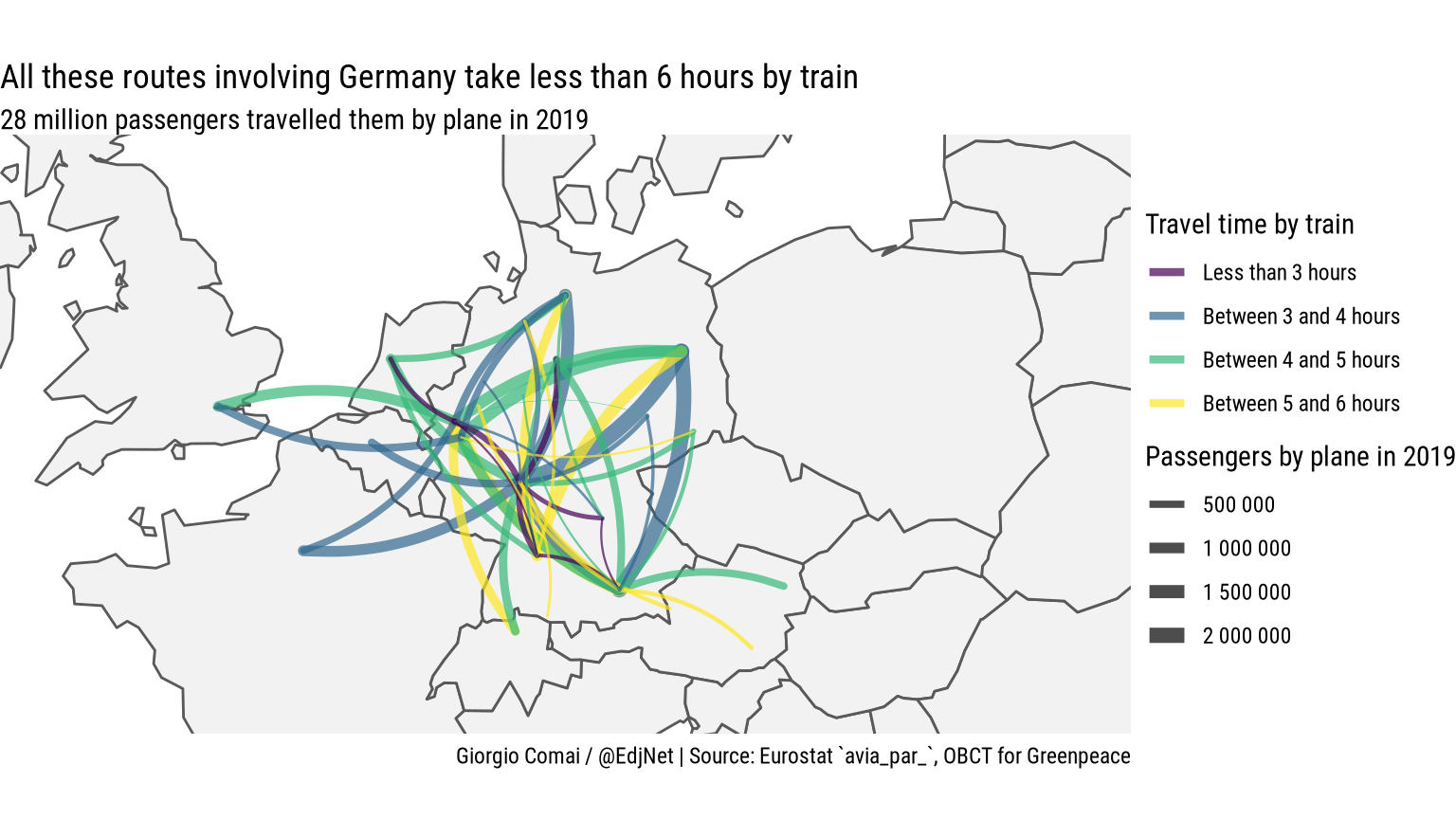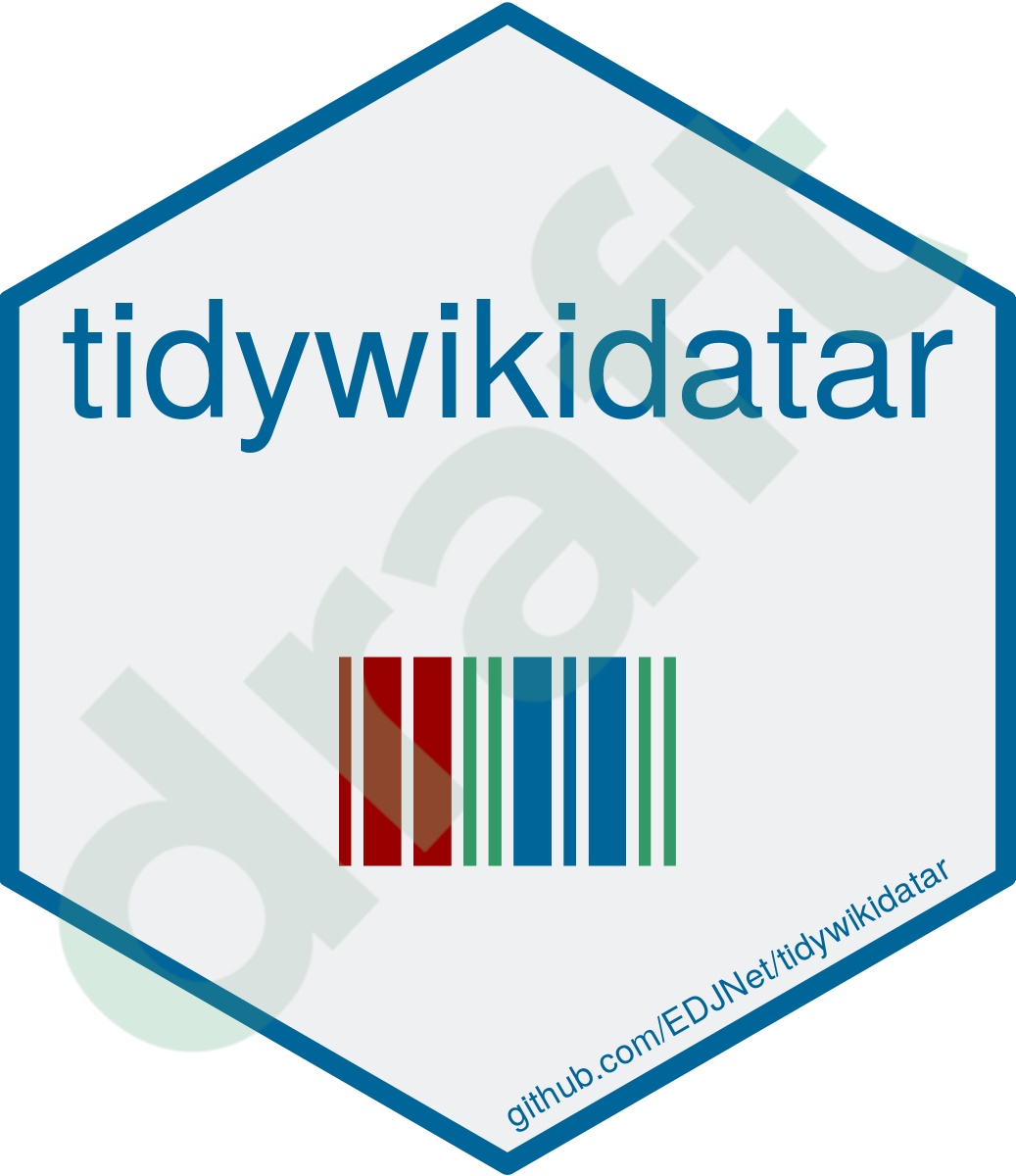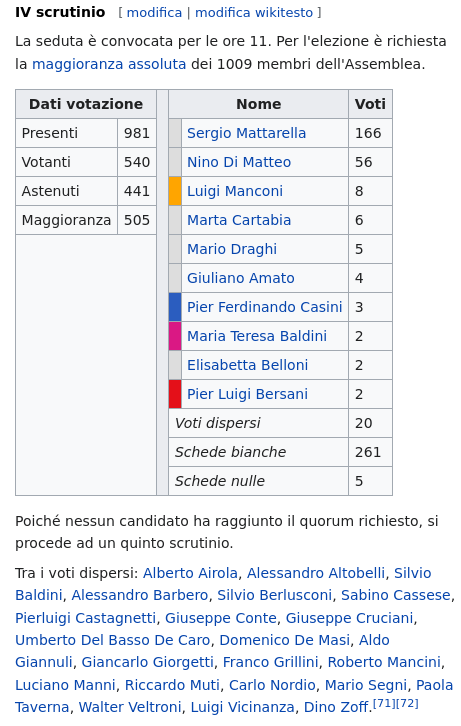---
title: "Wikidata for data journalism"
subtitle: "(with R and 'tidywikidatar')\n[Wikidata Data Reuse Days 2022](https://diff.wikimedia.org/event/%e2%99%bb%ef%b8%8f-wikidata-for-data-journalism-with-r/)"
author: "Giorgio Comai"
institute: "(OBCT/CCI - EDJNet)"
date: "17 March 2022"
output:
xaringan::moon_reader:
chakra: libs/remark-latest.min.js
lib_dir: libs
css: ["default", "css/custom_wikidata.css"]
nature:
highlightStyle: github
highlightLines: true
countIncrementalSlides: false
ratio: '16:9'
---
# Contents
- who am I?
- why I felt the need for a new package for interacting with Wikidata?
- `tidywikidatar` - a new(ish) R package
- how it solves these problems
- how `tidywikidatar` works
- actual use cases
- an interactive web interface for checking manually what automatic approaches may not get right
- what next?
```{r eval=TRUE, echo = FALSE, message=FALSE}
library("dplyr")
library("latlon2map")
invisible(ll_set_folder(fs::path(fs::path_home_r(),
"R",
"ll_data")))
options(timeout = 6000)
options(htmltools.dir.version = FALSE)
```
---
# Hi, I'm Giorgio Comai
- researcher and data analyst working for OBCT/CCI
- we coordinate the [European Data Journalism Network](https://www.europeandatajournalism.eu/)
```{r echo = FALSE, fig.align='center'}
knitr::include_graphics("img/EDJNet-logo.svg")
```
- one of our goals is to create tools for data journalists
- I am the author of the R package `tidywikidatar` - an R package that facilitates exploring 'Wikidata' through tidy data frames
- online mostly as *@giocomai* e.g. on [GitHub](https://github.com/giocomai/), [Twitter](https://twitter.com/giocomai), [Wikidata](https://www.wikidata.org/wiki/User:Giocomai)
- I have a website, [giorgiocomai.eu](https://giorgiocomai.eu/)
---
# Why a new package for R?
- there are other Wikidata packages for R, in particular:
- `WikidataQueryServiceR` - SPARQL queries!
- `WikidataR` - all of Wikidata's complexity, which in R translates into nested lists that differ depending on the content
- R has quickly grown to prominence in data journalism largely thanks to the `tidyverse`, a suite of packages based on a consistent grammar that has data frames at its core. There was not an easy way to use Wikidata in a way that is consistent with this logic
---
# What's the matter?
- R users mostly hate nested lists
- some probably also hate SPARQL, but even more simply don't know much about SPARQL
- if you don't know what to expect, it's a pain to process data
- existing tools are not fit for the iterative data analysis process that is at the core of data journalism
- re-running an analysis with minor changes is a very common part of the workflow... without built-in caching, this can be painfully slow
---
# `tidywikidatar`
Check out website with documentation and examples:
https://edjnet.github.io/tidywikidatar/
[](https://cran.r-project.org/package=tidywikidatar)
[](https://r-pkg.org/pkg/tidywikidatar)
[](https://r-pkg.org/pkg/tidywikidatar)
- everything in tabular format
- one row, one piece of information
- easy local caching
- easy integration with `dplyr` piped routines
- get image credits from WikiMedia commons
- include Wikipedia in the exploration, or use it as a starting point
---
class: middle, center
background-image: url(img/DRD_background_lower.png)
background-size: contain
# A couple of examples of practical use cases
---
### Olympics 2020 medalists by place of birth
https://github.com/EDJNet/olympics2020nuts
```{r echo = FALSE}
knitr::include_url("https://edjnet.github.io/olympics2020nuts/medalists_map.html")
```
---
### Main air routes that could be travelled by train
Wikidata used for: defining city hubs for airports, getting coordinates of airports (for excluding those on islands), use unique identifiers for merging with train dataset
[https://edjnet.github.io/european_routes/](https://edjnet.github.io/european_routes/)
```{r out.width="720px", echo = FALSE}
#{width=512px}
knitr::include_graphics(path = "img/air_train_routes_germany.png")
```
---
### Mapping diversity
https://medium.com/european-data-journalism-network/finding-gendered-street-names-a-step-by-step-walkthrough-with-r-7608c2d36a77
```{r echo = FALSE}
knitr::include_url("https://mappingdiversity.eu/italy/bologna/")
```
---
class: middle, center
background-image: url(img/DRD_background_lower.png)
background-size: contain
# `tidywikidatar`
# The basics
---
# Enable local caching
```{r}
library(dplyr, warn.conflicts = FALSE)
library("tidywikidatar")
tw_enable_cache()
tw_set_cache_folder(
path = fs::path(fs::path_home_r(),
"R",
"tw_data"))
tw_set_language(language = "en")
tw_create_cache_folder(ask = FALSE)
```
---
# Or e.g. MySQL
```{r eval = FALSE}
library(dplyr, warn.conflicts = FALSE)
library("tidywikidatar")
tw_enable_cache(SQLite = FALSE)
tw_set_cache_db(driver = "MySQL",
host = "localhost",
port = 3306,
database = "tidywikidatar",
user = "secret_username",
pwd = "secret_password")
```
---
# Search
```{r}
tw_search("European Union")
```
---
# Get an item
```{r}
tw_search("European Union") %>%
slice(1) %>%
tw_get()
```
---
# Get a specific property
```{r}
tw_search("European Union") %>%
slice(1) %>%
tw_get_property(p = "P31")
```
---
# Get a specific property
```{r}
tw_search("European Union") %>%
slice(1) %>%
tw_get_property(p = "P31") %>%
tw_label()
```
---
# What about qualifiers?
e.g. when did member states join the EU?
```{r}
tw_get_qualifiers(id = "Q458", # European Union
p = "P150") # contains administrative territorial entity
```
---
# What about qualifiers?
```{r}
tw_get_qualifiers(id = "Q458", # European Union
p = "P150") %>% # contains administrative territorial entity
filter(qualifier_property == "P580") %>% # keep only "start time"
transmute(country = tw_get_label(qualifier_id), #<<
start_time = qualifier_value) #<<
```
- for more, check `tw_get_property_with_details()`
---
### Dealing with multiple results when only one is needed
Easy questions can be difficult: in which country is London?
```{r}
tibble::tibble(city_qid = c("Q84")) %>%
dplyr::mutate(city_label = tw_get_label(city_qid),
country_qid = tw_get_p(id = city_qid,
p = "P17")) %>%
tidyr::unnest(country_qid) %>%
mutate(country = tw_get_label(country_qid))
```
---
### Dealing with multiple results when only one is needed
- keeping first result is tricky
- keeping only preferred may still give more than one result
- people who love tabular data often want just one result, that needs to be "good enough"
```{r}
tibble::tibble(city_qid = c("Q84", "Q220")) %>%
dplyr::mutate(city_label = tw_get_label(city_qid),
country_qid = tw_get_p(id = city_qid,
p = "P17",
preferred = TRUE, #<<
latest_start_time = TRUE, #<<
only_first = TRUE)) %>% #<<
dplyr::mutate(country_label = tw_get_label(country_qid))
```
---
class: middle, center
background-image: url(img/DRD_background_lower.png)
background-size: contain
# Different entry points
---
### Search
- `tw_search()` - search strings
### Query
- `tw_query()` - simple queries based on property/value couples
- `tw_get_all_with_p()` - get all items that have a given property, irrespective of their value
### Based on Wikipedia
- `tw_get_wikipedia_page_links()` - Get all Wikidata Q identifiers of all Wikipedia pages linked to input
- `tw_get_wikipedia_page_section_links()` - All identifiers found in a specific section of a Wikipedia page
---
class: middle, center
background-image: url(img/DRD_background_lower.png)
background-size: contain
# An example starting from Wikipedia
---
# Election of the President of the Republic in Italy
- [Election of the President of the Republic in Italy](https://it.wikipedia.org/wiki/Elezione_del_Presidente_della_Repubblica_Italiana_del_2022)
- the electoral college can vote literally for whoever they like
- the list ends up including very different candidates, from respected intellectuals to football players and porn actors
- almost all of them with one thing in common: they are on Wikidata, but Wikidata does not know they have something in common.
---
## Wikidata identifiers
.pull-left[
Take a single section:
```{r include = TRUE, eval=FALSE}
df <- tw_get_wikipedia_page_section_links(
title = "Elezione del Presidente della Repubblica Italiana del 2022",
section_title = "IV scrutinio",
language = "it")
df %>% select(wikipedia_title, qid)
```
]
.pull-right[
```{r eval = TRUE, echo = FALSE}
df <- tw_get_wikipedia_page_section_links(
title = "Elezione del Presidente della Repubblica Italiana del 2022",
section_title = "IV scrutinio",
language = "it"
) %>%
select(wikipedia_title, qid)
df %>%
head(8) %>%
knitr::kable()
```
]
---
# Find out more
```{r}
pob_df <- df %>%
select(qid) %>%
mutate(name = tw_get_label(qid)) %>%
mutate(place_of_birth_id = tw_get_p(id = qid, p = "P19",only_first = TRUE)) %>%
mutate(place_of_birth = tw_get_label(place_of_birth_id)) %>%
mutate(place_of_birth_coordinates = tw_get_p(id = place_of_birth_id,
p = "P625",
only_first = TRUE))
pob_df
```
---
### Here they are on a map
.pull-left[
```{r}
pob_sf <- pob_df %>%
tidyr::separate(
col = place_of_birth_coordinates,
into = c("pob_latitude","pob_longitude"),
sep = ",",
remove = TRUE,
convert = TRUE) %>%
filter(is.na(pob_latitude)==FALSE) %>%
sf::st_as_sf(coords = c("pob_longitude", "pob_latitude"), crs = 4326)
library("ggplot2")
pop_gg <- ggplot() +
geom_sf(data = ll_get_nuts_it(level = 3, no_check_certificate = TRUE)) +
geom_sf(data = pob_sf, colour = "deeppink4") +
theme_minimal()
```
]
.pull-right[
```{r echo = FALSE}
pop_gg
```
]
---
### All the usual things we expect from Wikidata
.pull-left[
```{r}
occupation_df <- df %>%
pull(qid) %>%
tw_get_property(p = "P31") %>% # get "instance of"
filter(value == "Q5") %>% # keep only humans
tw_get_property(p = "P106") %>% # get occupation
# filter(value!="Q82955") %>% # exclude politicians
group_by(value) %>%
count(sort = TRUE) %>%
ungroup() %>%
transmute(occupation = tw_get_label(value), n)
```
]
.pull-right[
```{r echo = FALSE}
occupation_df %>% knitr::kable()
```
]
---
### And other things useful for data visualisation and interactive interfaces, e.g. quick access to images...
```{r}
president_df <- tw_search("Sergio Mattarella") %>%
tw_filter_first(p = "P31", q = "Q5")
president_df %>% tw_get_image()
```
```{r}
president_df %>% tw_get_image(format = "embed", width = 300) %>% pull(image)
```
---
### ...with metadata and credits line
```{r}
president_df %>% tw_get_image_metadata() %>%
tidyr::pivot_longer(cols = -1, names_to = "property", values_transform = as.character)
```
---
### Back and forth between Wikidata and Wikipedia
This gets the Q identifier of all pages linked from a the Wikipedia page of a given Q identifier. Easy peasy :-)
```{r}
president_df %>%
tw_get_wikipedia(language = "it") %>% # gets url of Wikipedia page from QID
tw_get_wikipedia_page_links(language = "it") %>%
select(wikipedia_title, qid)
```
---
class: middle, center
background-image: url(img/DRD_background_lower.png)
background-size: contain
# Integration with interactive interfaces
---
class: middle, center
background-image: url(img/screenshot_mapping_diversity_01.png)
background-size: contain
---
class: middle, center
background-image: url(img/screenshot_mapping_diversity_02.png)
background-size: contain
---
class: middle, center
background-image: url(img/DRD_background_lower.png)
background-size: contain
# Issues and next steps
---
# General issues
- if you are processing many thousands of items, the current approach can be very slow when run for the first time (near instant thanks to caching later)
- no obvious long term solution, but a future version will allow for an easier way to share the cache to make sure others can also run the script instantly
- no easy way to "give back" to Wikidata
- I'm considering some sort of integration with [QuickStatements](quickstatements.toolforge.org/), and welcome recommendations on best practices (not so much on the technical implementation, but rather, what kind of instructions or warnings I should expose to users)
---
# Issues related to the web interface and mapping
- finalise the web interface, hopefully it will be out and public by the summer
- make it more generic, for easier checks of arbitrary sets of strings
- consider data issues, in particular the fact that many streets have an own item on Wikidata
- consider ways to "give back" newly gathered data to Wikidata (the data generated via the web interface will anyway be public)
- consider what to do with indirect outputs, e.g. lists of people who have street dedicated to them, but who apparently are not on Wikidata (also considering the inherent biases)
---
# `tidywikidatar`
Check out website with documentation and examples:
https://edjnet.github.io/tidywikidatar/
[](https://cran.r-project.org/package=tidywikidatar)
[](https://r-pkg.org/pkg/tidywikidatar)
[](https://r-pkg.org/pkg/tidywikidatar)
- everything in tabular format
- one row, one piece of information
- easy local caching
- easy integration with `dplyr` piped routines
- get image credits from WikiMedia commons
- include Wikipedia in the exploration, or use it as a starting point



